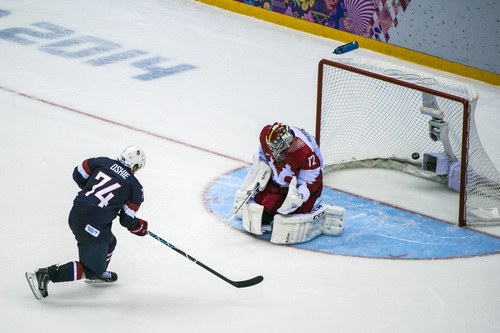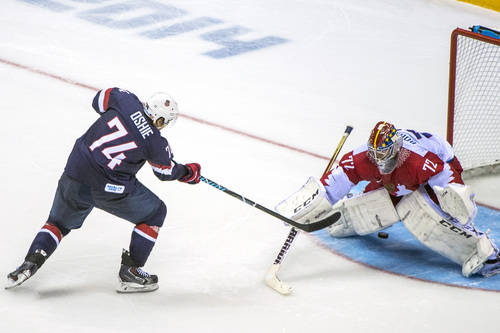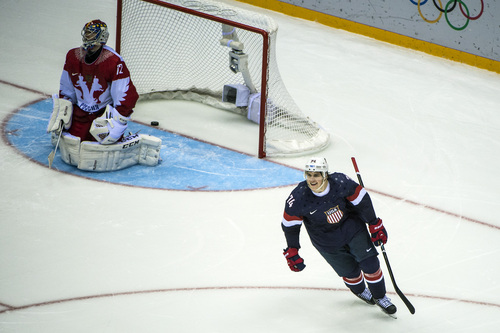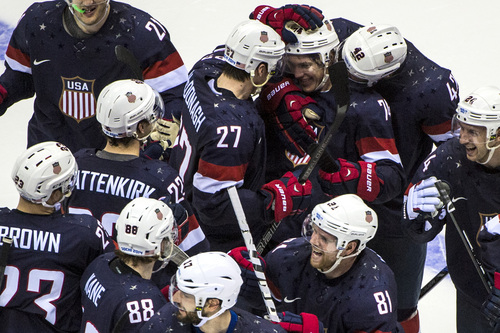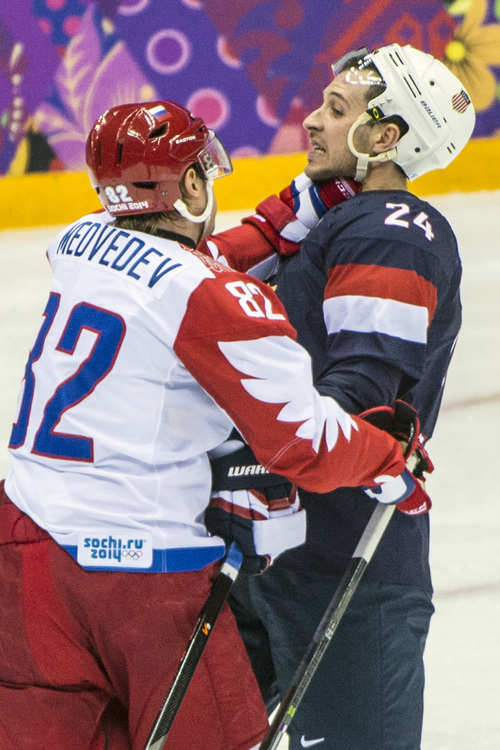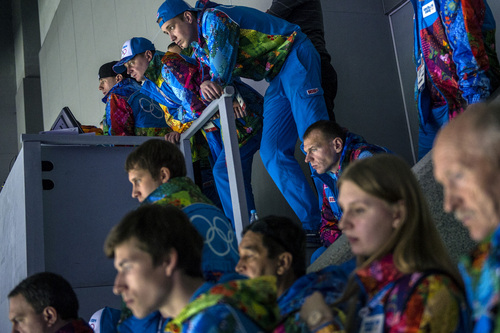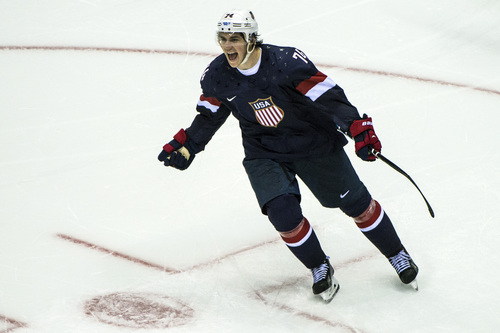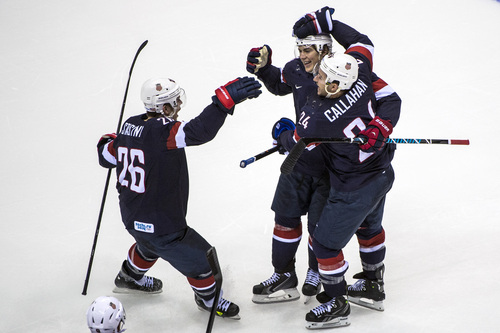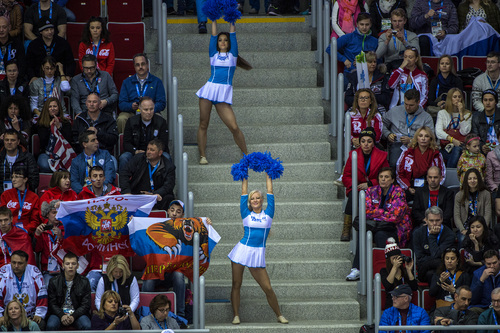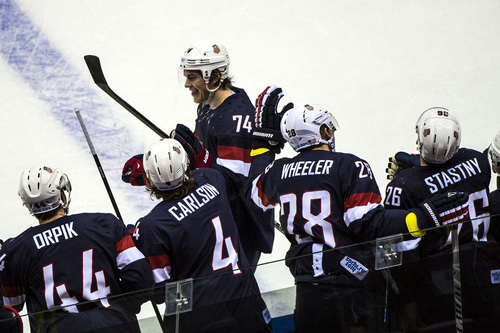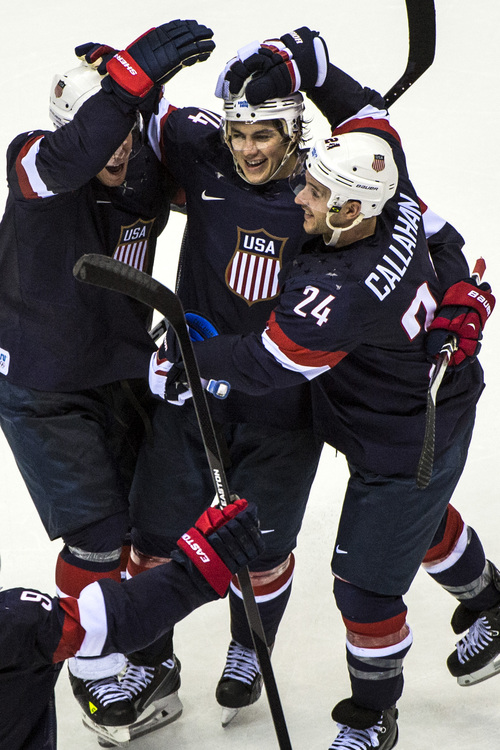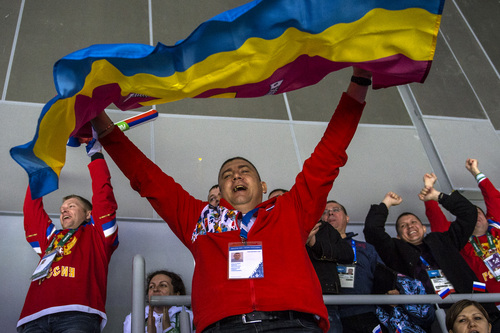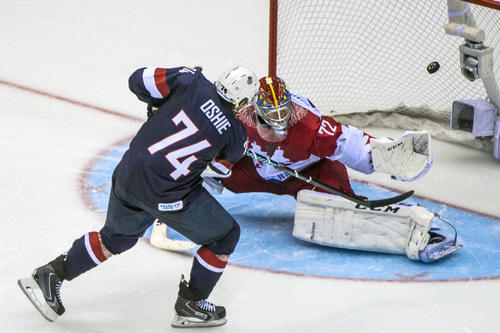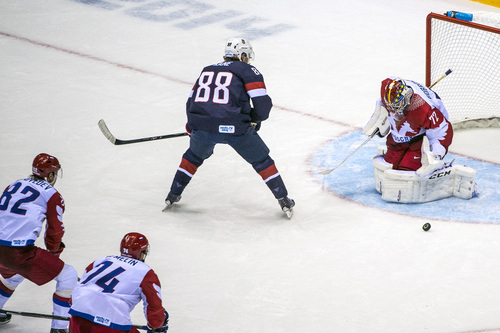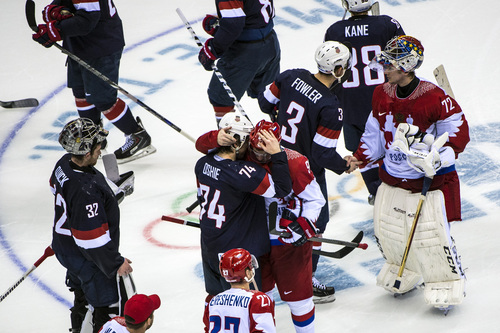This is an archived article that was published on sltrib.com in 2014, and information in the article may be outdated. It is provided only for personal research purposes and may not be reprinted.
Sochi, Russia
T.J. Oshie fired a puck and subdued a country.
Nothing resonates in the Olympics like a home-ice hockey game, and Saturday's meeting between the USA and Russia will be one to remember. Never mind that this is only the preliminary round of the 2014 Games, and disregard how the matchup evoked the inevitable thoughts of the 1980 "Miracle on Ice."
This is a different era, with a higher level of hockey players, and this game deserves its own distinction. It's Oshie in Sochi, 34 years after Lake Placid.
Oshie ended it by beating Russian goalie Sergei Bobrovski in the eighth round of a shootout, giving the Americans a 3-2 victory at the Bolshoi Ice Dome. The U.S. players spilled onto the ice in celebration — half surrounding Oshie, the other half mobbing goalie Jonathan Quick — and the Russians departed unhappily.
The Americans' victory will carry the asterisk of a disallowed goal late in the third period, when the net behind Quick became slightly dislodged and Fedor Tyutin's slap spot from the point didn't count. If that was a huge break, the Americans earned everything they got in the shootout that followed a five-minute overtime period.
Russia's consolation: In the tournament standings, the host team earns a point for an overtime loss and the Americans gets only two points, instead of three, for winning. There's also the history lesson of 2010, when the U.S. team beat Canada in Vancouver in pool play, only to lose to the Canadians in the gold medal game.
Yet there can be no doubt that Oshie's conversion short-circuited a huge celebration in the Olympic Park and far beyond. This tournament means everything to Russia, and the missed opportunity will create considerable anxiety about the host country's gold medal hopes.
But what a game, right? The aura in the arena with fewer than 12,000 seats was wonderful — if not quite as revved up as Vancouver's atmosphere for the USA-Canada games four years ago, with a bigger building in an NHL market.
"You could just feel the buzz in the air, and you just had that feeling the whole game," said U.S. defenseman Cam Fowler.
The Russian fans waved flags and chanted all evening, then walked away in disappointment and disbelief after Quick stopped Ilya Kovalchuk's shot in the last round and Oshie scored.
Quick is the goalie who helped Salt Lake City's Trevor Lewis and the rest of the Los Angeles Kings win the Stanley Cup in 2012. Oshie plays for the St. Louis Blues, formerly owned by Utah native Dave Checketts. They undoubtedly enjoyed what unfolded in the shootout, with an intriguing format.
Once the initial best-of-three phase was completed, teams could send out any player. The Russians used Pavel Datsuyk and Kovalchuk; U.S. coach Dan Bylsma stuck with Oshie, who basically made the team because of his shootout ability.
At one stage, Oshie told his teammates, "I'm running out of moves here," but he delivered 4 of 6 times.
"You're not going to see something like that ever again," Fowler marveled.
This game drove home the point that hockey is by far the best team sport in the Olympics, Winter or Summer. Just try to name any other sport in which America's best players are virtually equal to one or more countries' top talent. This hockey tournament is what I wish Olympic basketball would look like, and what America aspires to make of World Cup soccer someday.
The variable is that Olympic hockey is exponentially more fun when the host country is a contender, such as 2002 in West Valley City, 2010 in Vancouver and here in Sochi. It just won't be the same in Korea in 2018.
Russia's support elevates this tournament, and Canada or the USA (again) will have to go through the home team in the elimination rounds to win gold. The Americans have shown what they're capable of doing in Sochi. Throughout the rest of Russia, a week of worrying looms.
Twitter: @tribkurt


